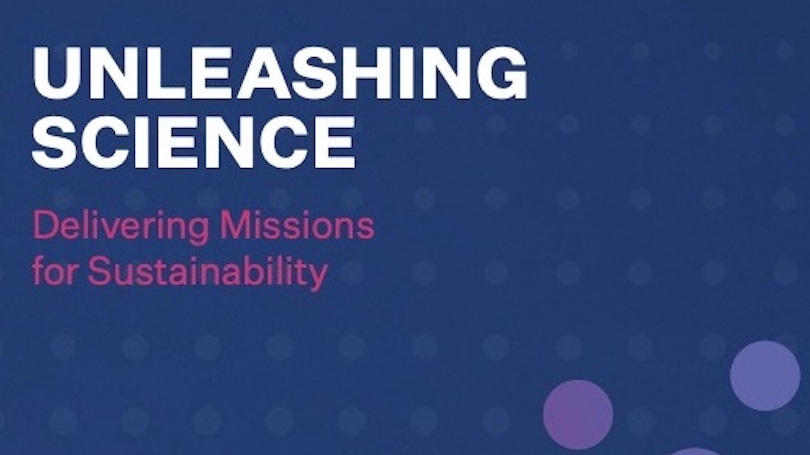
- About
- Programs
- Student Opportunities
- For Faculty
- News & Events
Back to Top Nav
Back to Top Nav
Back to Top Nav
Back to Top Nav
Back to Top Nav
New report, "Unleashing Science," makes case for international action
A new International Science Council (ISC) report, developed at the request of the Global Forum of Funders (GFF), was advised by Dartmouth's Melody Brown Burkins, Director of the Institute of Arctic Studies, Senior Associate Director in the John Sloan Dickey Center for International Understanding, and Adjunct Professor of Environmental Studies.
The ISC report - Unleashing Science: Delivering Missions for Sustainability – offers an ambitious call to major global science funders, including US federal agencies, to change how they do business. The report urges that they rapidly coordinate their investments in global science to produce actionable knowledge to mitigate our planetary climate emergency and accelerate achievement of the 17 global Sustainable Development Goals, or SDGs. Specifically, the report calls for five "Sustainability Science Missions" to be developed and funded immediately -- in the areas of food, energy and climate, health and wellbeing, water, and urban areas -- to help stabilize our Earth systems within 10–20 years.
"For this 'Unleashing Science' report, we were asked to address how funders might rapidly deploy resources for science-informed, mission-driven solutions to immediate, global threats to our planet such as rapid climate change," said Burkins, "Importantly, we also urged a global approach of relentless inclusion: this work cannot be done by scientists and funders alone, but must be co-created with local communities, Indigenous Peoples organizations, NGOs, governments, and the full diversity of societal partners."
The ISC, founded in 2018, is the only non-governmental organization in the world bringing together the natural, physical, and social sciences. Representing a membership of over 140 global science organizations, including the US National Academies, as well as 40 international scientific unions, the ISC vision is to "advance science as a global public good." The ISC holds a central role in advising global science and technology policy for sustainability as a co-convenor of the UN Major Group for Science and Technology with the World Federation of Engineering Organizations (WFEO).
Burkins is an elected member of the founding ISC Governing Board and has served as an expert advisor and reviewer to several reports and papers addressing science for global sustainability, science cooperation, and systemic racism and inequalities in global science systems. She recently served on a 15-member global independent expert group (EGU2030) for a soon-to-be-released report urging higher education institutions (HEIs) to prioritize inclusion of diverse forms of knowledge, including Indigenous Knowledge systems, as they work towards sustainability.